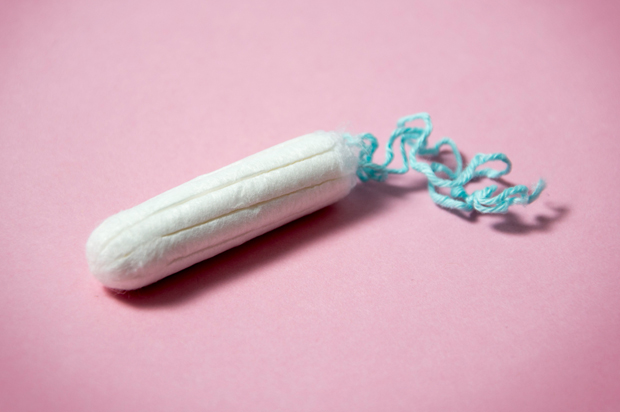Well, I guess you won, feminism. A year ago, writer Jessica Valenti made the modest proposal that “menstrual care is health care, and should be treated as such,” asking “But seriously: Why aren’t tampons free?” Now, in one New York City school, they are.
As the Queens Courier first reported on Tuesday, Councilwoman Julissa Ferreras-Copeland announced that Corona’s High School for Arts and Business would become the first school in the city to dispense Tampax tampons and Maxithins free of charge. The vending company HOSPECO is providing them for the duration of the school year. New York Magazine noted earlier this week that public school girls do have access to emergency tampons and pads upon request, but in many schools that necessitates permission from a teacher and a trip to the nurse’s office, or an explicit written request. Just what every 14 year-old girl wants, right?
Ferreras-Copeland says that “Offering free menstrual care supplies as we do toilet paper and condoms is a matter of avoiding health risks, eliminating the stigma that surrounds a natural part of a woman’s life, and for girls in school, not having to skip class because they got their period.” The 850 student Corona school will be a test program, with the hope that at the end of the school year the Department of Education and the city will evaluate and expand it.
The initiative began earlier this year, when Ferreras-Copeland posted on Facebook that “When I worked at the Beacon Program in Corona, young girls would skip class because they preferred that to asking staff for pads or risk staining their clothes. In a city where we hand out free condoms, we should be making essential feminine hygiene products more affordable and accessible. It’s a matter of avoiding health risks, affordability and women’s equality.” She also is currently pushing to improve access to feminine products in prisons and homeless shelters, as well as remove the state sales tax and have menstrual products covered under SNAP benefits.
Back when Valenti dared to note that “Sanitary products are vital for the health, well-being and full participation of women and girls across the globe. The United Nations and Human Rights Watch, for example, have both linked menstrual hygiene to human rights,” she was roundly mocked and excoriated for it. And when she queried on Twitter if there were any places in the world where feminine products were free, she faced a predictable yet still super gross torrent of abuse.
The burden of menstruation — something that we’re still not supposed to acknowledge or discuss in polite, mixed company — is a huge physical and financial hardship for females, especially girls, all over the world. Last year, the BBC profiled Arunachalam Muruganantham, the south India inventor who’s been working to create better menstrual hygiene products — and manufacturing jobs — in a country in which only 12 percent of the female population uses pads. And organizations like Days for Girls are a similar mission to empower females by helping them get their their periods in a hygienic and safe way — enabling them to better work and go to school. All women and girls deserve that opportunity, whether they’re in developing countries and in Queens.
Aside from the all-around awesomeness of the new, unfettered access to feminine protection for the students of the High School for Arts and Business, maybe the best thing about the story is the photograph that ran with it this week in the Queens Courier. It shows a group of male and female students, a male representative from of HOSPECO, Councilwoman Ferraras-Copeland and Deputy Schools Chancellor Elizabeth Rose, smiling into the camera. Without shame, without apology. Because menstruation happens. And as Ferreras-Copeland says, “Feminine hygiene products allow women and girls to carry out their daily responsibilities uninterrupted, and they should always be easily accessible.”

